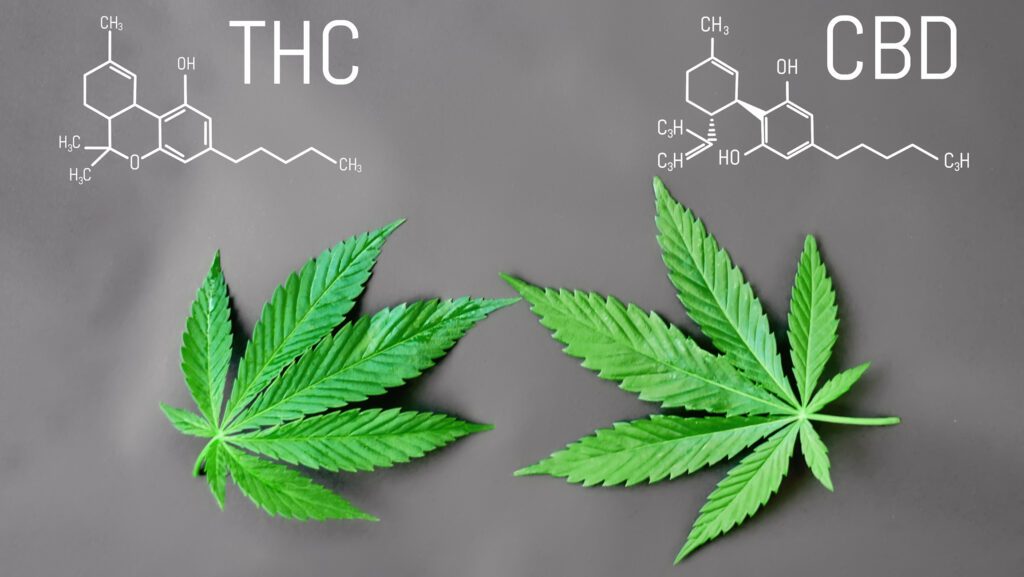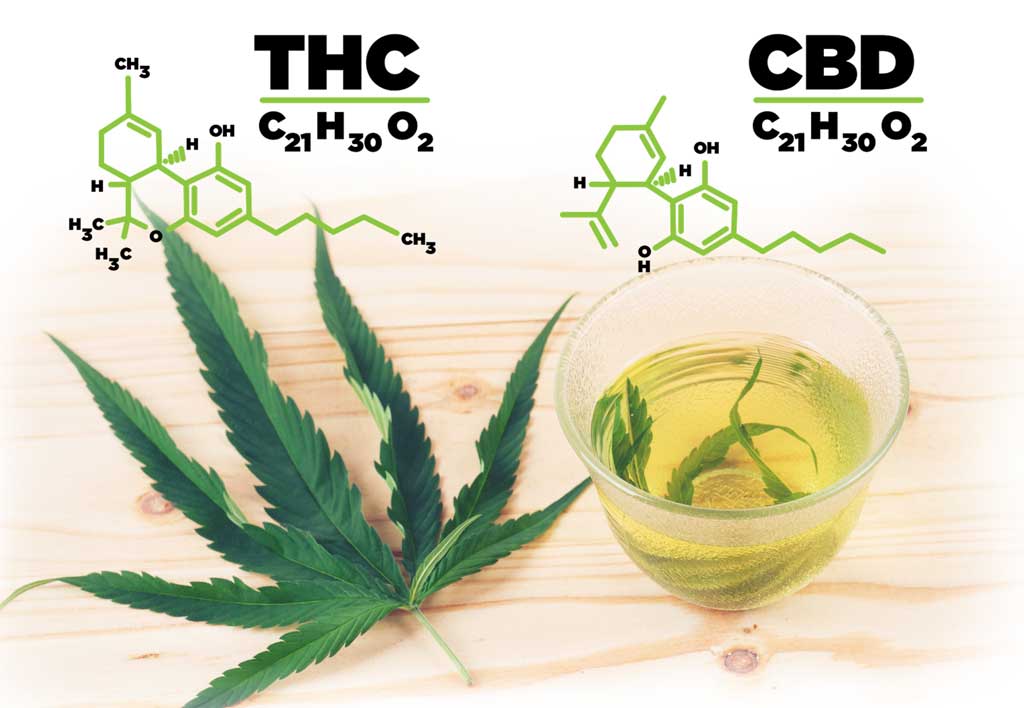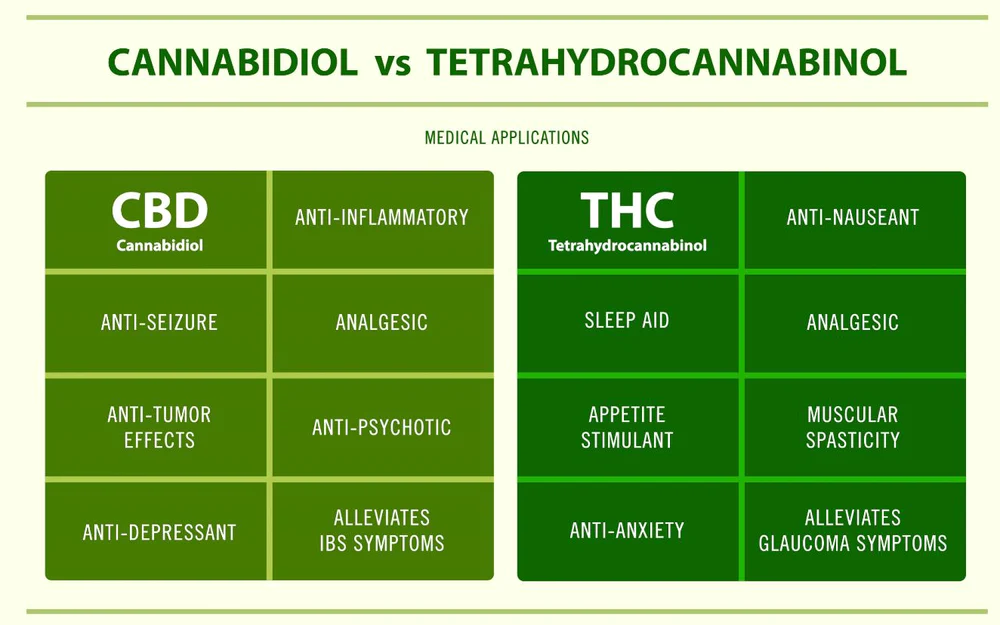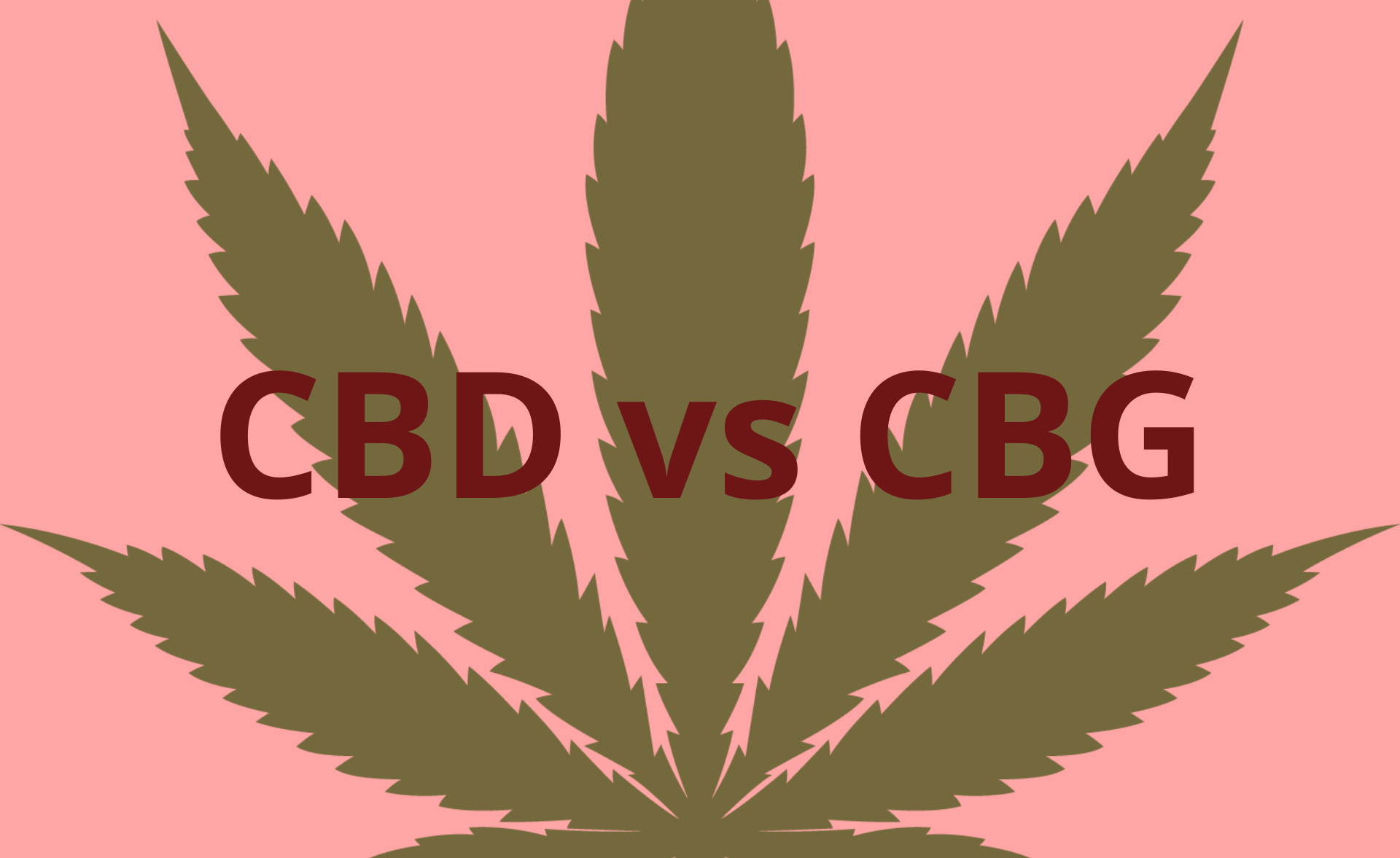CBD vs THC: Understanding the Differences and Benefits
The objective of comparing CBD vs THC is to be able to understand the key to the difference and benefit each of them can provide to the human body.
CBD and THC are natural compounds found in cannabis plants. While THC has psychoactive effects, CBD does not. This article provides an overview of their differences, medical uses, legal considerations, side effects, and more.
Understanding CBD vs THC can help individuals make informed decisions about their health and wellness.

Table of Contents
CBD vs THC: What is CBD?
CBD, short for cannabidiol, is a natural compound found in cannabis plants. It is one of over 100 cannabinoids present in the plant, with CBD and THC being the most well-known and abundant. While THC (tetrahydrocannabinol) is the primary psychoactive component responsible for the ‘high’ feeling associated with cannabis use, CBD does not have the same psychoactive effects. Instead, CBD is known for its potential therapeutic benefits.
Chemical composition of CBD
CBD has a chemical structure composed of 21 carbon atoms, 30 hydrogen atoms, and 2 oxygen atoms, with a molecular weight of 314.46 grams per mole. It belongs to a class of compounds called cannabinoids, which interact with the body’s endocannabinoid system. The endocannabinoid system plays a crucial role in regulating various physiological processes, including pain sensation, mood, sleep, and immune function.
Unlike THC, CBD does not directly bind to cannabinoid receptors in the brain. Instead, it influences the receptors indirectly, modulating their activity and enhancing the body’s natural cannabinoids. This modulation may explain some of the potential therapeutic effects of CBD.
The chemical composition of CBD also sets it apart from THC in terms of its psychoactive properties. THC has a similar chemical structure to anandamide, a naturally occurring endocannabinoid in the human body. This structural similarity allows THC to bind directly to cannabinoid receptors, resulting in the characteristic psychoactive effects
On the other hand, CBD’s different molecular structure prevents it from binding strongly to cannabinoid receptors. This lack of direct binding is believed to be responsible for CBD’s non-intoxicating nature and absence of psychoactive effects.
While CBD and THC share some similarities in their chemical composition, their distinct structures and interactions with the body make them produce different effects and potential benefits.
CBD vs THC: Chemical structure
CBD and THC, two compounds found in the cannabis plant, have distinct chemical structures that contribute to their different effects on the body.

Differences in Molecular Structure
CBD and THC have similar chemical formulas, with 21 carbon atoms, 30 hydrogen atoms, and 2 oxygen atoms. However, their arrangement of atoms differs, resulting in different chemical structures. CBD has a hydroxyl group (-OH) attached to the 6th carbon atom, while THC has a cyclic ring structure with a ketone group (C=O) attached. This variation in structure is essential for the different interactions of CBD and THC in our bodies.
Psychoactive Effects of THC
THC is known for its psychoactive effects, producing the ‘high’ or euphoric sensation commonly associated with cannabis use. This psychoactivity is due to the chemical structure of THC, which allows it to bind to the cannabinoid receptors in the brain, specifically the CB1 receptors. This interaction leads to alterations in neurotransmitter release and affects various cognitive and motor functions, resulting in the psychoactive experience.
Lack of Psychoactivity in CBD
Unlike THC, CBD has a different impact on our body’s receptors. CBD does not bind strongly to CB1 receptors, and it does not produce the same psychoactive effects as THC. In fact, CBD has been found to counteract some of THC’s psychoactive properties by inhibiting its binding to CB1 receptors. This interaction is believed to contribute to the overall milder and non-intoxicating nature of CBD, making it an appealing option for those seeking the potential health benefits of cannabis without the psychoactive effects.

Medical uses of CBD and THC
The medical benefits of CBD and THC have gained significant attention in recent years. Both cannabinoids have shown promise in treating various health conditions, although they have different mechanisms of action and effects.
Conditions treated with CBD
Epilepsy: CBD has been widely studied for its anticonvulsant properties and has been approved by the FDA as a treatment for certain types of epilepsy.
Chronic pain: CBD may help alleviate chronic pain, including conditions like arthritis and multiple sclerosis.
Anxiety and depression: CBD has been found to have potential anxiolytic and antidepressant effects.
Inflammation: CBD has shown anti-inflammatory properties and may be beneficial in conditions such as inflammatory bowel disease.
Conditions treated with THC
Chronic pain: THC is often prescribed to alleviate severe pain, especially in cancer patients or those with terminal illnesses.
Nausea and vomiting: THC has antiemetic properties and is commonly used to manage chemotherapy-induced nausea and vomiting.
Appetite stimulation: THC can increase appetite, making it useful for conditions such as cachexia or loss of appetite in HIV/AIDS patients.
Glaucoma: THC has been found to reduce intraocular pressure and may be beneficial in managing glaucoma.
Potential synergistic effects
There is growing evidence to suggest that CBD and THC may have synergistic effects when used together. This phenomenon, known as the entourage effect, suggests that the combination of these cannabinoids, along with other compounds found in the cannabis plant, may enhance their therapeutic potential.
It is important to note that further research is needed to fully understand and validate the medical uses of CBD and THC. Additionally, individual responses to these cannabinoids may vary, and it’s crucial to consult with a healthcare professional before starting any treatment.
Legal Considerations for CBD and THC
Federal Legality of CBD vs THC
When it comes to the legal status of CBD and THC, there are important distinctions to consider. At the federal level in the United States, CBD derived from hemp with less than 0.3% of THC is legal. This is largely due to the passing of the 2018 Farm Bill, which removed hemp from the Controlled Substances Act. However, it’s important to note that CBD derived from marijuana is still considered illegal federally.
The legalization of CBD on the federal level has opened up various opportunities for research, development, and distribution of CBD-infused products. It has also brought about increased accessibility for individuals seeking the potential health benefits of CBD without the psychoactive effects associated with THC.
State Regulations on CBD and THC
While CBD derived from hemp is legal on a federal level, it’s crucial to recognize that individual state laws regarding CBD and THC can vary. Some states have embraced the legalization of both medicinal and recreational cannabis, allowing for broader access to CBD and THC products. Other states, however, maintain stricter regulations or outright prohibition.
It is essential for consumers to familiarize themselves with their state’s specific laws and regulations pertaining to CBD and THC. These laws can dictate factors such as possession limits, requirements for medical use, licensing for dispensaries, and more. Staying informed and adhering to state regulations helps ensure compliance and mitigates legal risks.
It’s worth noting that the landscape of cannabis laws is continuously evolving, with states regularly reevaluating and adjusting their policies. Therefore, it is recommended to regularly check for updates and changes in state regulations to stay up-to-date with the current legal status of CBD and THC.
In conclusion, CBD derived from hemp with low THC content is legal at the federal level in the United States, while the legality of THC and CBD derived from marijuana varies from state to state. Understanding both federal and state legal considerations is crucial for individuals looking to use, possess, or distribute CBD and THC products within the boundaries of the law.
Side effects and safety of CBD and THC
When it comes to considering the use of CBD and THC, it is important to be aware of the potential side effects and safety considerations. While both compounds are generally well-tolerated, it is essential to understand that individual responses may vary.
Common Side Effects
While CBD products are generally considered safe, some individuals may experience mild side effects. These can include:
- Dry mouth
- Drowsiness
- Changes in appetite
- Diarrhea
- Nausea
It is important to note that these side effects are typically mild and temporary. If you experience any persistent or severe side effects, it is recommended to consult with a healthcare professional.
Risks and Precautions
Although CBD and THC are generally well-tolerated, there are a few risks and precautions to be aware of:
Drug interactions: CBD and THC can interact with certain medications, particularly those metabolized by the liver enzymes CYP450. It is important to consult with a healthcare professional if you are taking any medications.
Psychiatric effects: THC may cause temporary psychiatric effects, such as anxiety or paranoia, especially at higher doses. Individuals with a history of psychiatric disorders should exercise caution and seek medical advice before using THC-containing products.
Quality and purity: To ensure safety, it is crucial to purchase CBD and THC products from reputable sources that provide third-party lab testing results and accurately label their products.
By understanding these risks and taking appropriate precautions, individuals can minimize potential adverse effects and ensure safer use of CBD and THC.
Drug Interactions
Both CBD and THC have the potential to interact with other medications. They can affect the way certain drugs are metabolized, potentially leading to increased or decreased levels of medication in the body.
Some medications that may interact with CBD and THC include:
- Anticoagulants (blood thinners)
- Antidepressants
- Antiepileptic drugs
- Antipsychotics
- Benzodiazepines
- Immunosuppressants
- Opioids
If you are currently taking any medications, it is crucial to discuss your CBD or THC use with your healthcare provider to ensure there are no potential interactions that could affect your medication’s efficacy or safety.
Overall, while CBD and THC can provide various health benefits, it is essential to be informed of the potential side effects, risks, and drug interactions associated with their use. Consulting with a healthcare professional is recommended to ensure the safest and most effective use of these compounds.
CBD vs THC: Which is right for you?
When considering the use of CBD or THC for your specific needs, it’s important to take various factors into account. Understanding these factors and evaluating your personal preferences and goals can help you make an informed decision.
Factors to consider
Medical condition: Different conditions may respond differently to CBD and THC. Researching the specific benefits and effects of each compound for your condition can guide your decision.
Desired effects: Consider what effects you are seeking. CBD is known for its non-intoxicating properties, while THC can provide psychoactive effects that some individuals may prefer.
Tolerance and sensitivity: Assess your tolerance and sensitivity to cannabis compounds. Individuals may react differently to CBD and THC, so understanding your own response is crucial.
Legal considerations: Be aware of the legal status of CBD and THC in your jurisdiction. Federal laws may differ from state laws, and it is essential to follow the regulations in your area.
Availability and accessibility: Evaluate the availability and accessibility of CBD and THC products in your region. Consider whether you have access to reliable sources and various product options.
Personal preferences and goals
Everyone’s preferences and goals are unique. Identifying what you value most can help guide your decision between CBD and THC.
Psychoactivity: If you desire the euphoric effects associated with cannabis, THC may be more suitable for you. However, if you prefer to avoid psychoactivity, CBD is a non-intoxicating alternative.
Symptom relief: Consider the specific symptoms you aim to alleviate. Some individuals find CBD effective for reducing inflammation, pain, and anxiety, while others may find THC more beneficial for certain conditions.
Lifestyle considerations: Evaluate how CBD or THC use aligns with your lifestyle. Some individuals may prefer the discreet and versatile nature of CBD products, while others may not mind the restrictions that come with THC use.
Long-term use: Reflect on your long-term goals and intentions. If you plan to incorporate cannabis into your long-term wellness routine, it’s important to choose the option that best suits your needs and preferences.
In summary, when deciding between CBD and THC, it’s crucial to consider various factors including your medical condition, desired effects, tolerance, legal considerations, and personal preferences. By carefully evaluating these factors, you can make an informed choice that aligns with your unique needs and goals.




Post Comment